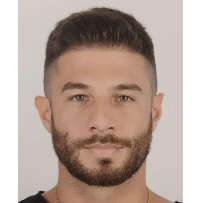Nikolaos Alachiotis
When
09 Apr 2021, 16:00 Athens time via Zoom
Title
Hardware Acceleration in Bioinformatics and the Path to Automated Hardware Generation
Abstract
The COVID-19 pandemic brought Bioinformatics into the spotlight, exposing weaknesses in existing methods and tools with respect to handling large genomic datasets efficiently. In this talk, I am going to present an overview of our on-going research on hardware accelerators and method development for compute-intensive Bioinformatics problems and automated accelerator generation. We are going to discuss two data-movement optimizations for accelerating phylogenetics using FPGAs in the cloud, and an effective approach to achieve near-peak CPU/GPU performance for the calculation of linkage disequilibria in population genetics. I am also going to present our first steps in CNN design exploration for the detection of positive selection, and some early results from our hardware-generation framework for automatically creating application-specific accelerator architectures.
About the speaker
https://people.utwente.nl/n.alachiotis
Nikolaos Alachiotis completed his undergraduate studies at the ECE department of the Technical University of Crete (Greece) and his Ph.D. at the Informatics department of the Technische Universität München (Germany) in 2008 and 2012, respectively. His research interests lie in the fields of computer architecture, parallel computing, reconfigurable computing, and Bioinformatics. He joined the Computer Architecture Lab at Carnegie Mellon University as a post-doctoral researcher in 2014, where he led the design of a generic acceleration architecture for 3D-stacked DRAMs. He joined the Computer Architecture and VLSI Systems Laboratory at FORTH-ICS in September 2016, where he worked on architecture design and hardware development for specialized acceleration in disaggregated datacenters. In June 2019, he joined the Telecommunications Systems Research Institute to work on automated generation of hardware-accelerated software for deployment on the cloud.
He has been an assistant professor in the Computer Architecture for Embedded Systems group of the University of Twente since June 2020.




